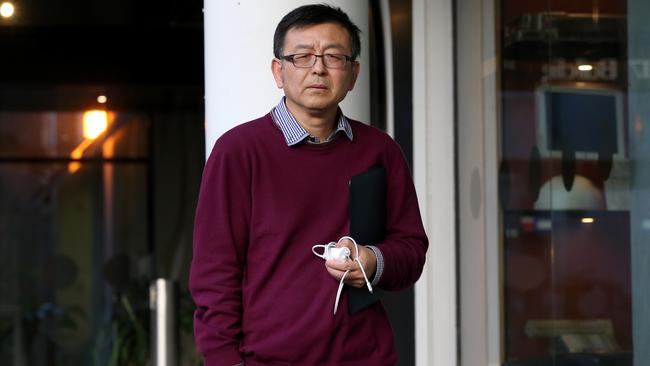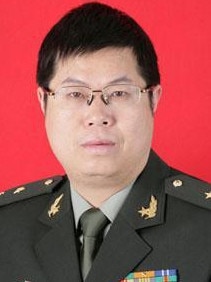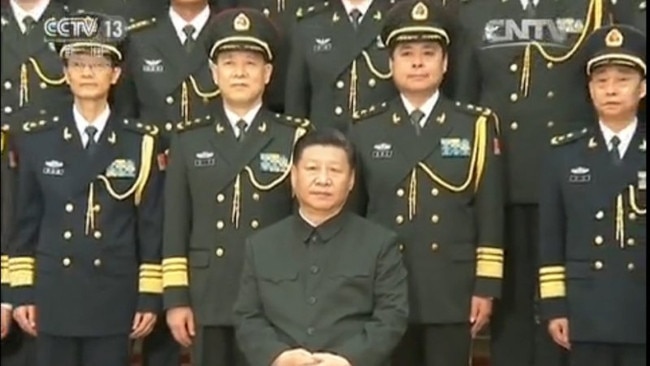Professor, Chinese generals co-authored defence research
A UNSW professor co-authored research with Chinese generals linked to Beijing’s nuclear program.

A University of NSW computer science professor co-authored research with Chinese generals linked to Beijing’s nuclear weapons program and supervised at least nine PhD students from China’s top military academy.
Professor Xue Jingling has been named by Beijing as an elite “Thousand Talents Scholar”, and maintains ongoing links to China’s National University of Defence Technology.
NUDT, which operates under the direct leadership of China’s Central Military Commission, has been blacklisted by the US because its supercomputers are “believed to support nuclear explosive simulation and military simulation activities”.
Professor Xue, an Australian citizen who has received grants from the Australian Research Council and the CSIRO, has worked at UNSW since 1999.
Amid growing concerns over Chinese foreign interference and intellectual property theft, The Australian can reveal that Professor Xue is listed in NUDT’s 2019 guide for prospective doctoral students as a supervisor at the Chinese university, which notes that he “only accepts military PhD students”.

According to Scopus, the world’s largest database of peer-reviewed literature, Professor Xue has written at least 36 scientific papers with NUDT academics, including 15 with Lieutenant General Yang Xuejun and eight with Major General Liao Xiangke.
General Yang, who designed the Tianhe-1 supercomputer, is president of China’s Academy of Military Science and a member of the 19th Central Committee of the Chinese Communist Party.
General Liao was chief designer of the Tianhe-2 supercomputer, which was the world’s fastest from 2013 to 2016.
Australian Strategic Policy Institute analyst Alex Joske, who uncovered Professor Xue’s links with NUDT researchers, found records showing he had supervised nine PhD students from NUDT at UNSW since 2008.
Mr Joske said Australian universities continued to work with Chinese scientists to develop technologies with potential military applications, despite laws preventing the export of sensitive technologies and those that could be used to develop weapons of mass destruction. “These activities point to serious gaps in Australia’s export control laws, which are failing to prevent the transfer of technologies to the People’s Liberation Army,” he said.
The Australian is not suggesting that Professor Xue’s conduct is in breach of any legislation.
The US Bureau of Industry and Security banned exports to NUDT and affiliated institutions in 2015 because it suspected that the university’s supercomputers — built with US semiconductors — were used in WMD research.
Australia’s Weapons of Mass Destruction Act prohibits the provision of services that contribute to the development of WMDs, while the Defence Trade Controls Act regulates the export of dual use technology that could be for military purposes.
According to NUDT, Professor Xue is part of Beijing’s prestigious Thousand Talents Plan, a Chinese government initiative to recruit overseas scientists.
The US’s National Intelligence Council says the program aims “to facilitate the legal and illicit transfer of US technology, intellectual property and know-how” to China. Thousand Talents Plan scholars typically receive generous salaries of about $US150,000 ($217,220), plus research funding from the Chinese government.
“The Chinese military’s supercomputers are important parts of its nuclear weapons program,” Mr Joske said. “They’re used to simulate and design nuclear warheads. In addition to building and maintaining its own stockpile of nuclear warheads, China has assisted nuclear programs in other countries, such as Pakistan and North Korea.
“The US government has banned exports to the Chinese military’s supercomputer program because of its role in nuclear weapons development, yet UNSW has continued working with and training military supercomputer researchers from China.”

Last month, Scott Morrison called out Chinese technology theft, in his first major foreign policy speech after the election, backing “legitimate” concerns about China’s behaviour as an international citizen. “Forced technology transfer is unfair. Intellectual property theft cannot be justified,” the Prime Minister said.
His comments followed calls by the Department of Defence last year urging greater powers to prevent research institutions from sharing dual-use and sensitive technologies, and warning that the Defence Trade Controls Act was “not sufficient to protect Australia’s national interests”.
A review by former inspector-general of intelligence and security Vivienne Thom found that “in certain circumstances, the current legislation fails to provide a measure to restrict access to technology by foreign persons identified as having intentions hostile to Australia”.
However, Dr Thom rejected Defence’s push for new legislative protections, amid warnings from universities that the proposal could threaten their ability to fund research.
A UNSW spokeswoman said the university took its security and compliance obligations “very seriously”. “In all of our projects and funding, we conduct rigorous assessments. This includes extensive due diligence on any potential dual-purpose technology projects and we scrutinise them for compliance with the Defence Trade Controls Act,” she said.
The spokeswoman said the university was satisfied that Professor Xue “has never been funded by the National University of Defence Technology, nor by the Chinese government”.
The spokeswoman said that, in 2017, UNSW sent a list of Professor Xue’s research projects to the Department of Defence, which advised that his research was “non-sensitive” and “not covered by government restrictions”.
“Our academics have co-authored papers with institutions including NUDT in the People’s Republic of China,” she said.
“This research has been published in internationally peer-reviewed academic journals which are in the public domain.”
Professor Xue refused to speak directly to The Australian.
Education Minister Dan Tehan said that universities were responsible for the staff they recruited, and must comply with relevant legislation. The Department of Defence warned that universities must take reasonable steps to satisfy themselves their activities did not breach the law.




To join the conversation, please log in. Don't have an account? Register
Join the conversation, you are commenting as Logout